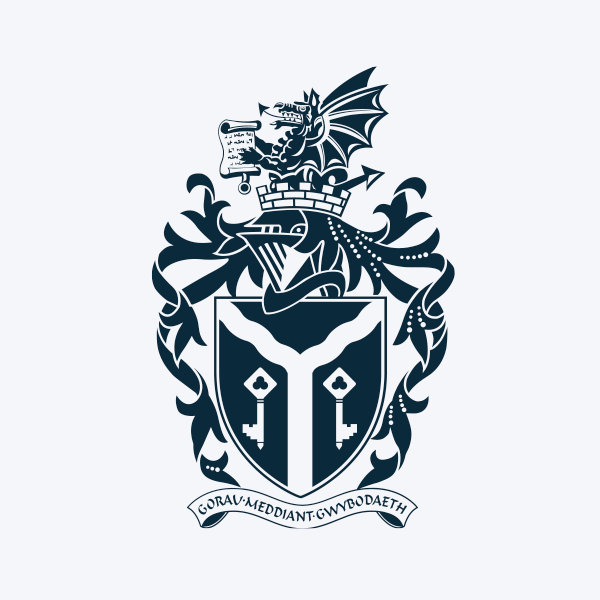
Dr Chris Pugh
Reader in Exercise & Cardiovascular Physiology
Cardiff School of Sport & Health Sciences
Overview
Chris is a Reader in Exercise & Cardiovascular Physiology within the Cardiff School of Sport & Health Sciences, and leads the Clinical Application & Translation Research & Innovation Group within CURIAD.
The global aim of his research programme is to examine how regular exercise and physical activity can effectively prevent, manage and treat cardiometabolic disease across the lifespan. His research focusses primarily on the chronic and acute effects of exercise on peripheral, central and cerebral artery function and haemodynamics in a diverse range of populations, including paediatric, elite athletic, ageing and high-risk disease states. Chris has extensive track record in the design and administration of exercise interventions in a variety of clinical populations and has lead several randomized controlled exercise trials. He also has in-depth expertise in advanced imaging techniques, including high-resolution vascular ultrasound, transcranial Doppler and whole-body MRI, for early detection of occult cardiometabolic disease and evaluation of the therapeutic effects of distinct exercise training modalities, heat therapy, water immersion and novel pharmaceuticals, as strategies to reduce cardiometabolic risk in vulnerable and aging populations. Accordingly, his research is very closely aligned to National and International strategic health agendas focussed on reducing overall disease burden, including the World Health Organisation’s commitment to preventing and treating non-communicable disease across the globe.
Chris has built an international network of leading collaborators across science, healthcare, and industry, securing over £2.5 million in competitive research funding. He serves on multiple expert panels on physical activity and cardiometabolic health and is the Wales lead for the global May Measure Month blood pressure awareness campaign.
Research Publications
Defining early vascular aging in youth: an expert consensus document from the youth vascular consortium
Kruger, R., Hersant, J., Kodithuwakku, V., Strauss-Kruger, M., Sinha, M. D., Johansson, M., Litwin, M., Hanssen, H., Königstein, K., Hidvégi, E. V., Stoner, L., Stone, K., Pugh, C. J. A., Mels, C. M. C., Breet, Y., Smith, W., Bia, D., Zócalo, Y., Diaz, A. & Khadilkar, A. & 6 others, , 21 May 2025, In: Journal of Hypertension.Research output: Contribution to journal › Review article › peer-review
Measuring early vascular aging in youth: an expert consensus document from the Youth Vascular Consortium
Hersant, J., Kruger, R., Bianchini, E., Königstein, K., Sinha, M. D., Hidvégi, E. V., Kodithuwakku, V., Mill, J. G., Diaz, A., Zócalo, Y., Bia, D., Celermajer, D., Hanssen, H., Johansson, M., Pucci, G., Litwin, M., Stone, K., Pugh, C. J. A., Stoner, L. & Urbina, E. M. & 3 others, , 6 May 2025, In: Journal of Hypertension. 4039.Research output: Contribution to journal › Review article › peer-review
Aerobic exercise interventions lead to MASH resolution in clinical trials: Pooled analysis using the MASH resolution index
Keating, S. E., Owen, P. J., Pugh, C. J. A., Cuthbertson, D. J. & Stine, J. G., 24 Mar 2025, In: Hepatology Communications. 9, 4, p. e0681 e0681.Research output: Contribution to journal › Article › peer-review
May Measurement Month 2022: an analysis of blood pressure screening results from the Republic of Ireland and the United Kingdom
Pugh, C. J. A., Williams, A., Beaney, T., Kerr, G., Dolan, E., Hynes, L., Rabbitt, M., Cunnane, P., Lip, S., McCallum, L., Salimin, N. B. P. M., Parekh, A., Modalavalasa, H., Poulter, N. R. & McDonnell, B. J., 5 Mar 2025, (E-pub ahead of print) In: European Heart Journal, Supplement.Research output: Contribution to journal › Article › peer-review
Passive heating in sport: context-specific benefits, detriments, and considerations
Menzies, C., Clarke, N. D., Pugh, C., Steward, C. J., Thake, C. D. & Cullen, T., 13 Jan 2025, In: Applied Physiology, Nutrition and Metabolism. 50, p. 1-15 15 p.Research output: Contribution to journal › Article › peer-review
Centenarians—the way to healthy vascular ageing and longevity: a review from VascAgeNet
Summer, S., Borrell-Pages, M., Bruno, R. M., Climie, R. E., Dipla, K., Dogan, A., Eruslanova, K., Fraenkel, E., Mattace-Raso, F., Pugh, C. J. A., Rochfort, K. D., Ross, M., Roth, L., Schmidt-Trucksäss, A., Schwarz, D., Shadiow, J., Sohrabi, Y., Sonnenberg, J., Tura-Ceide, O. & Guvenc Tuna, B. & 2 others, , 27 Dec 2024, In: GeroScience. 47, 1, p. 685-702 18 p.Research output: Contribution to journal › Review article › peer-review
Aortic-Femoral Stiffness Gradient and Cardiovascular Risk in Older Adults
Stone, K., Fryer, S., McDonnell, B., Meyer, M. L., Faulkner, J., Agharazii, M., Fortier, C., Pugh, C., Paterson, C., Zieff, G., Chauntry, A., Kucharska-Newton, A., Bahls, M. & Stoner, L., 7 Oct 2024, In: Hypertension. 81, 12, p. e185-e196Research output: Contribution to journal › Article › peer-review
Resistance and endurance trained young men display comparable carotid artery strain parameters that are superior to untrained men
Hornby-Foster, I., Richards, C. T., Drane, A. L., Lodge, F. M., Stembridge, M., Lord, R. N., Davey, H., Yousef, Z. & Pugh, C. J. A., 3 Oct 2024, In: European Journal of Applied Physiology. 125, 1, p. 131-144 14 p.Research output: Contribution to journal › Article › peer-review
Impact of Ultrasound Scanning Plane on Common Carotid Artery Longitudinal Wall Motion
Bryans, C. G., Cohen, J. N., Athaide, C. E., Pugh, C. J. A. & Au, J. S., 14 Sept 2024, In: Ultrasound in Medicine and Biology. 50, 12, p. 1849-1853 5 p.Research output: Contribution to journal › Article › peer-review
Flow-mediated dilation is modified by exercise training status during childhood and adolescence: preliminary evidence of the youth athlete's artery
Talbot, J. S., Perkins, D. R., Dawkins, T. G., Lord, R. N., Oliver, J. L., Lloyd, R. S., McManus, A. M., Stembridge, M. & Pugh, C. J. A., 15 Jul 2024, In: American Journal of Physiology - Heart and Circulatory Physiology. 327, 2, p. H331-H339Research output: Contribution to journal › Article › peer-review